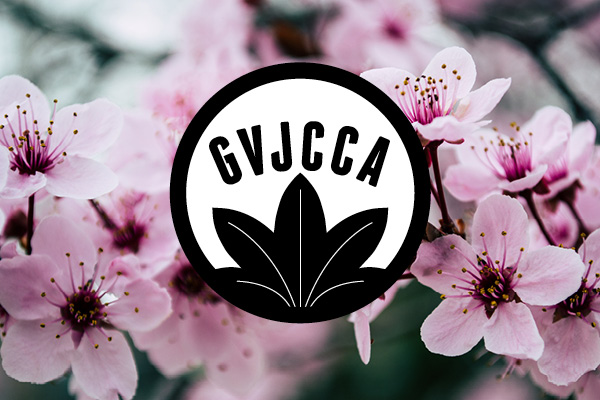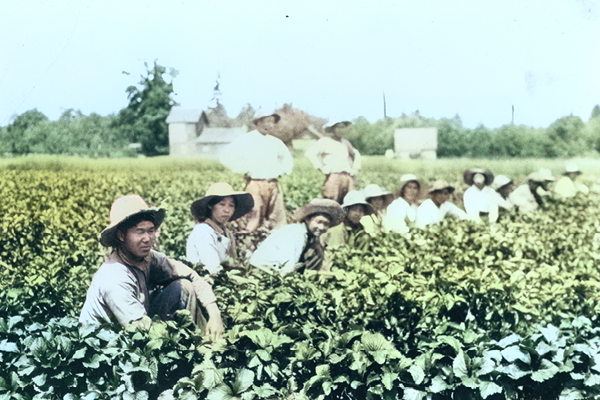by Kara Isozaki, Landscapes of Injustice Project
I learned about the NAJC/Landscapes of Injustice Hide Hyodo-Shimizu Research Scholarship this past winter. The timing was perfect. Landscapes of Injustice (LOI) was moving into its knowledge mobilization phase and the new clusters included an archival website and a museum exhibition. I was in my final semester of the Archives and Records Management and Museum Studies masters’ programs at the University of Toronto. I put together my application package during midterms with the support of the Toronto NAJC Chapter, interviewed over the phone from a library study room, and moved to Vancouver the day after my capstone project concluded.
I was assigned to the Archival Website Cluster to work with Lisa Uyeda, who is an archivist and the Collections Manager of the Nikkei National Museum (NNM). She co-heads the cluster with Stewart Arneil, a programmer consultant with the University of Victoria’s Humanities Computing and Media Centre. In 2021, the cluster will launch an archival database that will provide public access to research resources that LOI has collected since 2014. The goal is to foster future scholarly and community research.
Eventually, the database will include resources like oral histories and geographic information system materials. However, the cluster first is focusing its efforts on processing the thousands of archival records digitized by LOI that relate to the dispossession of Japanese Canadians. The cluster is preparing these records for batch migration from LOI’s internal database into Access to Memory (the new database’s public-facing interface). The records originate from over 20 archives and some libraries across Canada and internationally. Many were previously unavailable online. When the database launches, they will be all accessible through one website.
I was hired mainly to ensure that the contextual information about the records collected by LOI researchers follows archival standards, where appropriate, before the information is migrated. Contextual information, such as the dates of creation and the people who produced the records, can help database users understand the processes that led to the creation of the records and the connections between records.
Since the Archival Website Cluster is a mix of archivists and programmers, I learned to work collaboratively between two disciplines that approach database building in different ways. My cluster members pushed me to think critically about the application of archival theory and standards in real life situations. In the end, the cluster’s goal is to facilitate research by creating an easy to use database that includes all the necessary contextual information. While theory can guide decisions, it does not always apply perfectly. I am grateful that I could puzzle through these challenges with Lisa’s support. She helped me find a balance between theory and practice and encouraged me to reach out to others in LOI’s network for additional help.
I gained a greater understanding of the dispossession of Japanese Canadians and the lasting impacts by reading through LOI’s research resources that will be included in the database. I applied to the scholarship with this learning goal in mind. In addition, since I was based at the NNM, I was immersed in Vancouver community culture and connected with other Japanese Canadians. The Powell Street Festival was one of the highlights of my contract. At the LOI and NAJC booths, I discussed the work LOI is doing in the community with festival goers. It was wonderful talking about my community history in the neighbourhood where my grandparents lived and worked. When I travelled home, I asked my grandfather where his uncle’s store was located, and we spoke about what the area looks like today. I hope to work in Vancouver again so that I can meet more Japanese Canadians from out West and continue to explore the local history and culture.
Thank you to LOI, the NAJC, and the Shimizu family for offering this opportunity to students who wish to learn about Japanese Canadian heritage and expose the injustices faced by the community. I look forward to participating in the NAJC annual general meeting and conference in Winnipeg. I am eager to learn about the history and culture of the Japanese Canadian community in yet another city and province. A warm thank you to the Toronto NAJC chapter for its endorsement and to the NAJC Powell Street Festival team for including me in their activities. Finally, I am grateful to have been part of the NNM family of staff, interns, and volunteers. This summer has been an incredible experience. I am excited to see what next year’s scholarship recipient will learn and contribute.



